Policy- which is generally defined as a course of action to create a desired objective in the interest of the masses or the people. Policy research is utmost important for the sustainable development of country both at the national and local level. We at PARC carry out policy research, i.e., analyse the impact of any policy decision by the State & Central government from the perspective of various stakeholders in consultation with experts in that field. This enables us to come up with action-oriented recommendations and pragmatic solutions to the communities and decision makers for resolving fundamental problems in the society.
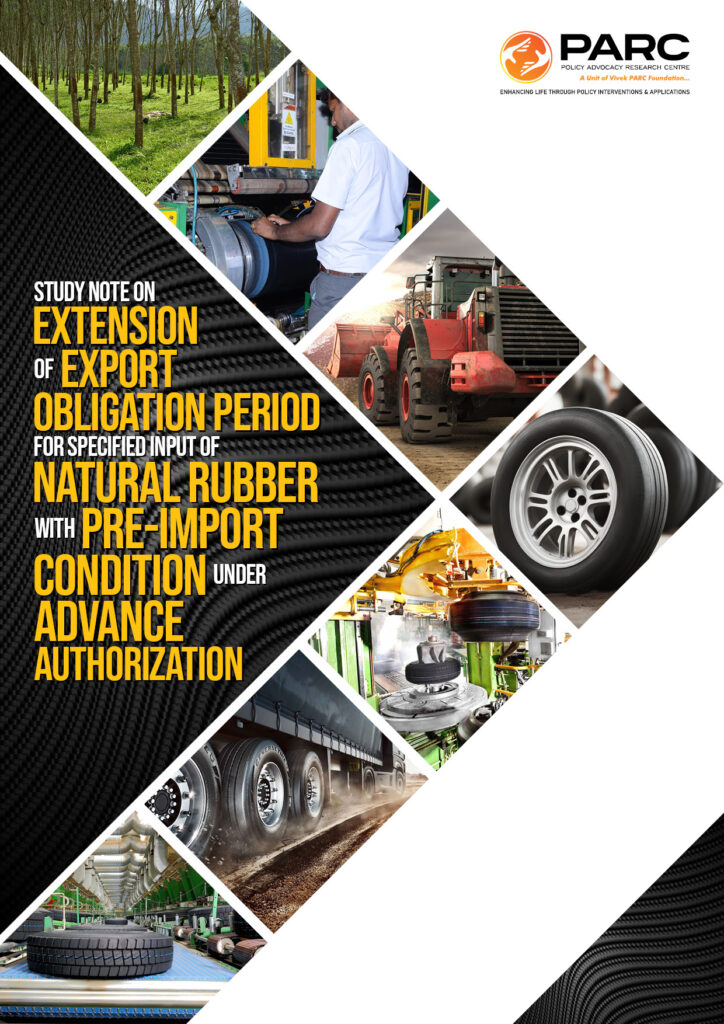
Study Note on Extension of Export Obligation Period for Specified Input of Natural Rubber with Pre-Import Condition Under Advance Authorization
PARC study note delves into the challenges faced by India’s tyre industry due to the current 6-month Export Obligation Period (EOP) for natural rubber under Advance Authorizations. It highlights the industry’s reliance on imports to meet demand, the impact of global competition, and the operational burdens of the short EOP. The note recommends extending the EOP to 12 months to enhance global competitiveness, streamline logistics, and align with the ‘Make in India’ initiative, fostering long-term planning and investment in the industry.

PARC brief Note for DGFT
PARC Note highlights the severe impact of tax penalties and interest on Indian exporters from October 13, 2017, to January 09, 2019, under pre-import conditions. The financial burden has led to the erosion of export profits, hampering market exploration wand diminishing global competitiveness, particularly affecting MSMEs. Urgently, PARC calls on political and bureaucratic stakeholders to repeal these impositions, aiming to relieve financial strain and position India as a leading global export hub during Kartavya Kaal. This concise analysis guides well-informed decision-making, stressing the critical need for resolution.
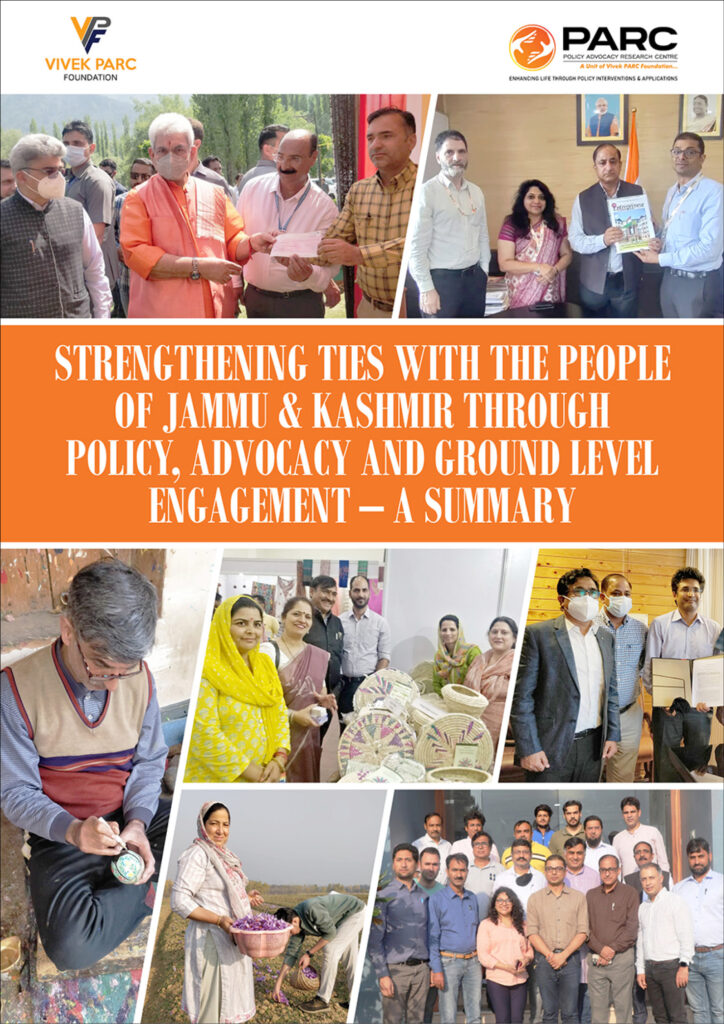
Strengthening the Ties with the People of Jammu and Kashmir through Policy, Advocacy and Ground Level Engagement – A Summary
As an independent think-tank and a socio-economic development-oriented implementation agency, PARC envisages to enhance human lives with policy interventions and applications. With its expertise, PARC has facilitated the UT-J&K to capitalize on multiple emerging avenues of development. Through research based policy creation, interventions and analysis PARC drafted the Jammu and Kashmir Sports Policy, 2022 and made submissions towards the PARVAZ scheme. PARC facilitated stakeholder engagement, organized events, and contributed to the development of human capital in UT-J&K, enabling the region to leverage its potential and drive socio-economic development.
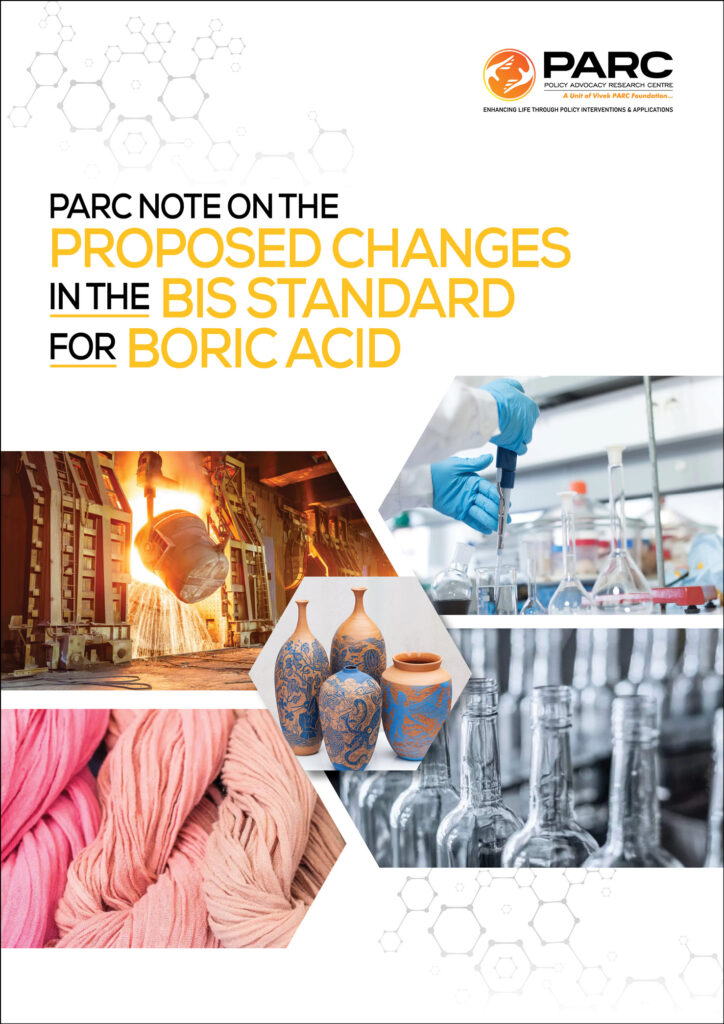
PARC Note on The Proposed Changes in the BIS Standard for Boric Acid
PARC Note delves into the proposed revisions to the Bureau of Indian Standards (BIS) for Boric Acid. The note comprehensively examines the existing BIS standard for Boric Acid, outlining its current norms and significance. The note elucidates the essence of the proposed changes, shedding light on the potential consequences. The note provides a sound rationale for advocating the retention of the status quo, supported by expert opinions and industry insights. In conclusion, it underscores the importance of maintaining the current BIS standards for Boric Acid, emphasizing the implications of the suggested alterations on various industrial sectors. This concise analysis aims to support well-informed decision-making by highlighting all relevant points, including the balance between regulatory changes and the needs of end-user industries.
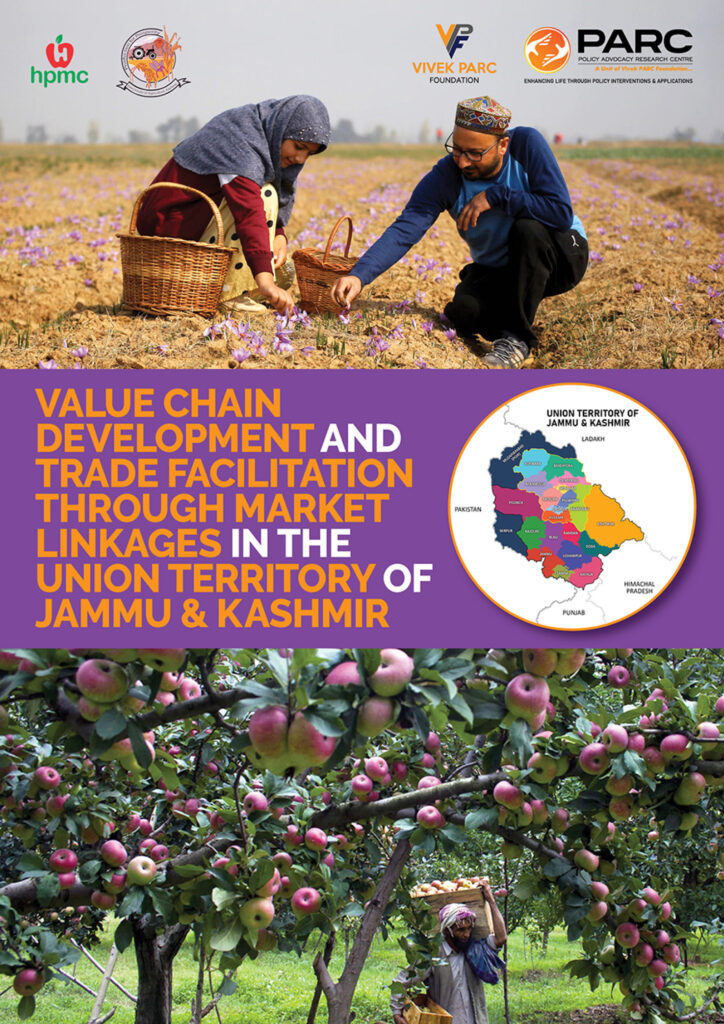
Value Chain Development and
Trade Facilitation Through Market Linkages in the Union Territory of Jammu and Kashmir (UT-J&K)
UT-J&K is home to a wide range of commodities from the agricultural and allied sectors. However, due to the lack of a streamlined marketing ecosystem within the state, there was a need for concerted effort towards aggregation and coordination between various stakeholders in the value chain. To address these issues and to facilitate the demand pull catalyzation for various commodities, PARC interacted with a number of agripreneurs and Farmer Producer Organizations (FPOs) to understand the problems pertaining to value chain development for a range of agricultural and horticultural commodities. Two models – a quadripartite and a tripartite were thus developed based on the understanding from the ground in various districts for various commodities and were piloted successfully.
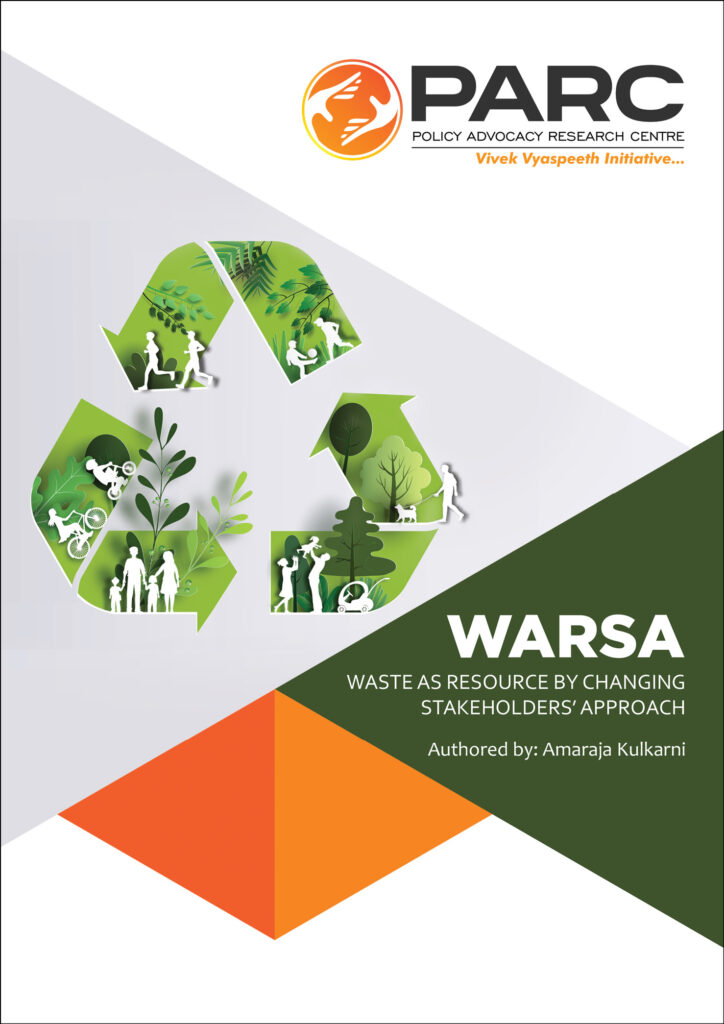
Key Information Access Guide
Authored by: Amaraja Kulkarni
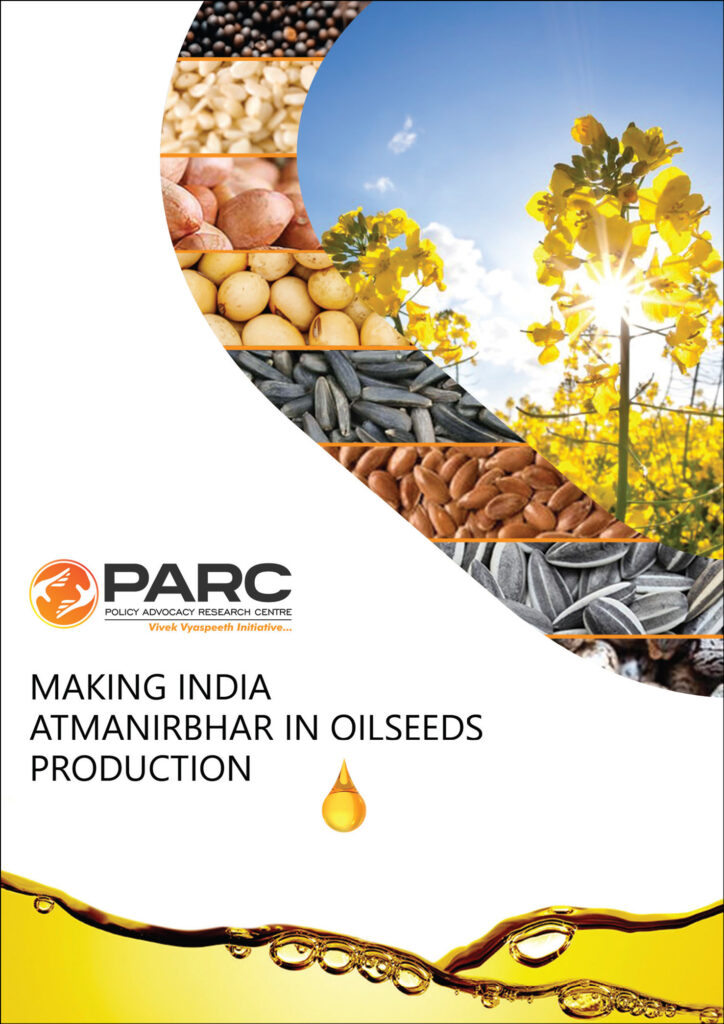
Making India Atmanirbhar in
Oilseeds Production
The need for a “zero edible oil import” plan was discussed by commerce minister Piyush Goyal at an inter-ministerial meeting on 5th November, 2019 and the commerce ministry asked the agriculture ministry to prepare a road map for India to attain self-sufficiency in edible oil production. Finance minister Nirmala Sitharaman, while presenting the budget in 2019, had also urged farmers to make India selfsufficient in edible oil production…

Impact Assessment of the Initiatives Undertaken in 2022-2023 to Promote Gurez as a Tourist Destination
Gurez, located 135 km from Srinagar in the Union Territory of Jammu and Kashmir, is gaining popularity as a border tourism destination due to its stunning landscapes, camping sites, nature trails, and rich cultural history. A 2022-2023 impact assessment by PARC & the Bandipora administration assessed the effectiveness of tourism promotion initiatives, identified growth potential, and developed strategies for sustainable tourism development. Based on the impact assessment, recommendations were made to increase accessibility, amenities, safety, sanitation, promotion, outreach, and tourist engagement.
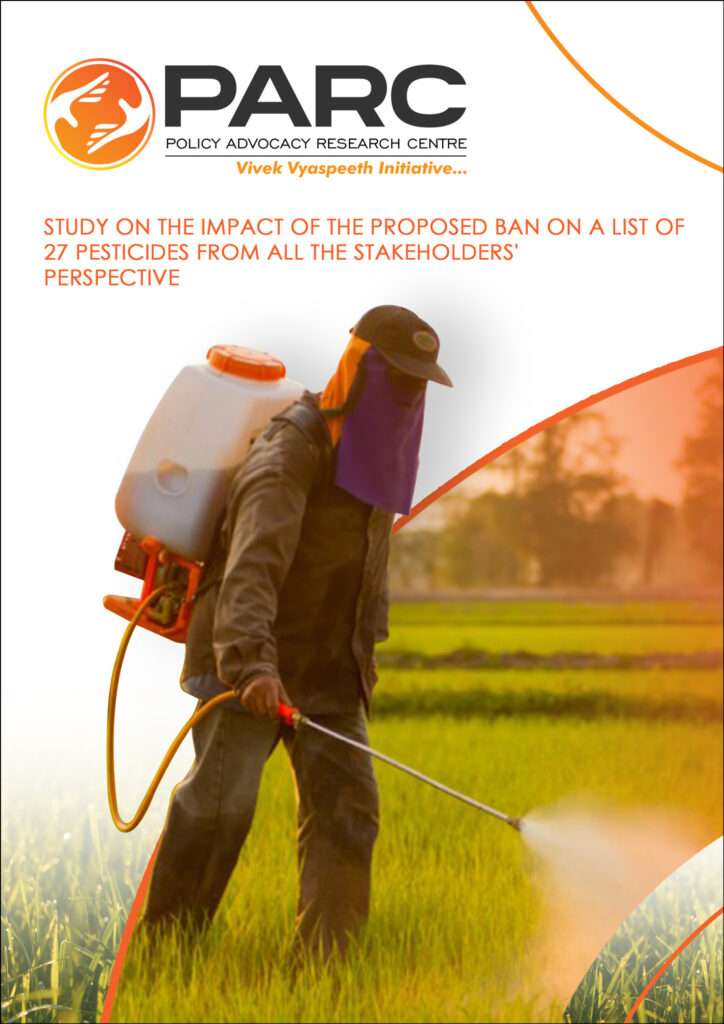
Study on the impact of proposed ban on list of 27 pesticides from the perspective of all stakeholders
On August 19, 2013, the Ministry of Agriculture assigned the job of reviewing 66 pesticides to an Expert Committee under the chairmanship of Dr. Anupam Varma. Dr. Anupam Varma Committee (AVC) submitted its report in December 2015. After the Committee report was submitted, 18 pesticides were banned immediately and 27 were to be reviewed. AVC, divided the 66 pesticides reviewed by it into 4 groups.
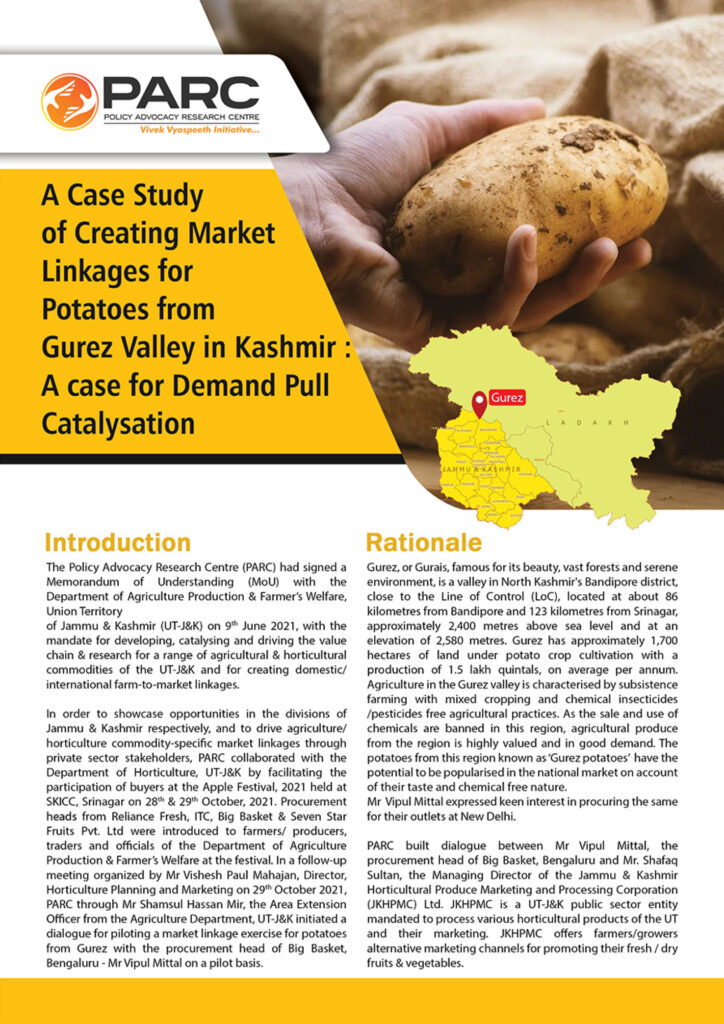
A Case Study for Creating Market Linkages for Potatoes from Gurez Valley in Jammu and Kashmir : A case for Demand Pull Catalyzation
A Memorandum of Understanding was signed between PARC and the Department of Agriculture Production and Farmers Welfare in the Union Territory of Jammu and Kashmir (UT-J&K) on June 9, 2021, to undertake research and develop the value chains for agricultural and horticultural commodities. Known for their chemical free nature and taste, Gurezi potatoes stand to capitalize on these strengths and emerge as a formidable option in the national market. A coordinated effort between the stakeholders led to the delivery of 2.9MT of Gurez potatoes to NCR Delhi with subsequent capacity building. PARC firmly believes that enhanced road and rail connectivity will enhance the feasibility of market linkage models for other commodities and that capacity building can aid in streamlining the channel for improved domestic/international farm-to-farm market linkages.
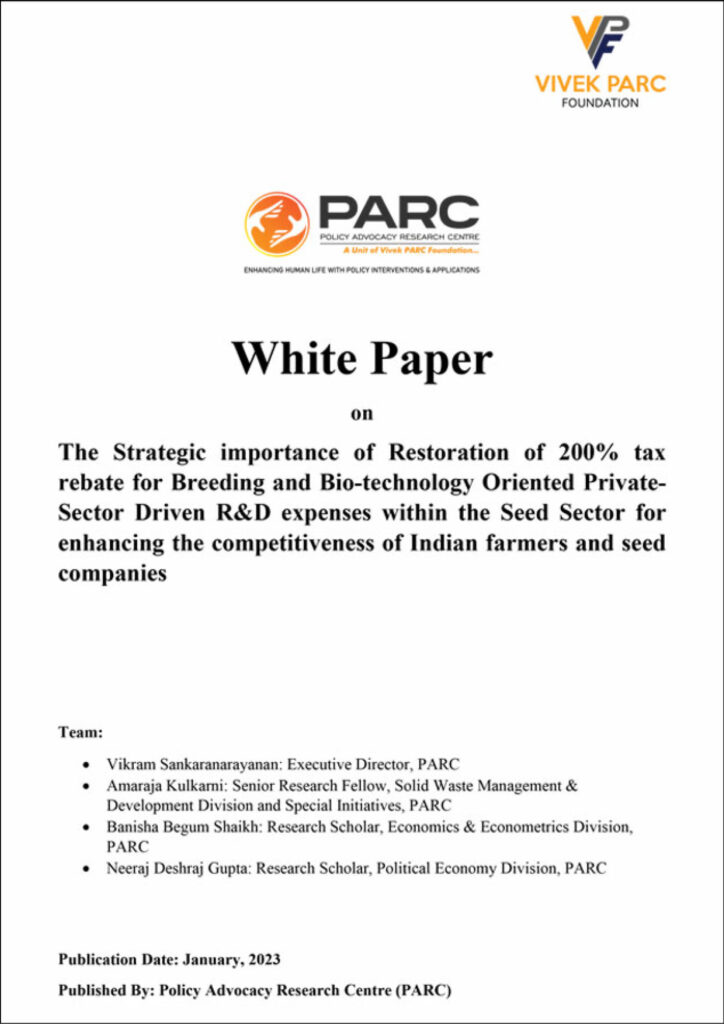
White Paper on The Strategic importance of Restoration of 200% tax rebate for Breeding and Bio-technology Oriented Private-Sector Driven R&D expenses within the Seed Sector for enhancing the competitiveness of Indian farmers and seed companies
The Indian seed sector has been a significant agri-system value chain stakeholder in driving & catalysing significant progress & growth of the agriculture sector over the last 7 decades. Seed is fundamental to all agricultural improvements since it has the genetic potential to increase yields and impart tolerance to abiotic and biotic stresses that have escalated due to climate change. Studies show that the estimated direct contribution of quality seed alone to the total production is about 15-20% depending upon the crop and it can be further raised up to 45% with efficient management of other inputs.
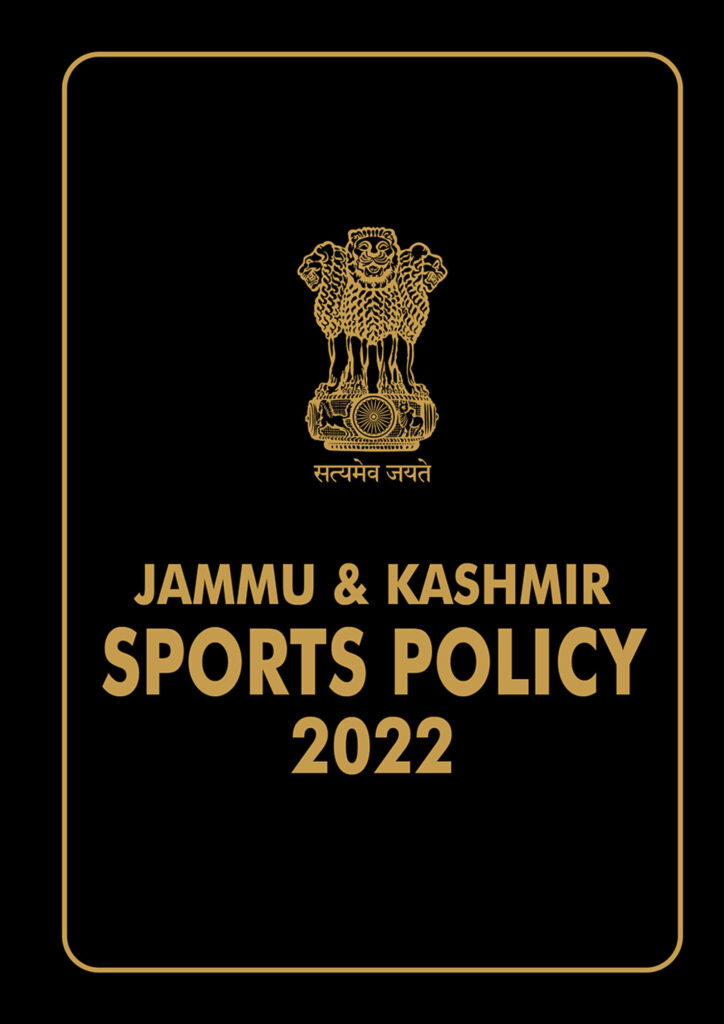
Jammu and Kashmir Sports Policy 2022
Through a Memorandum of Understanding signed between PARC and the Youth Services and Sports Department, Jammu and Kashmir, PARC drafted the Jammu and Kashmir Sports Policy 2022 with the inputs received from the Directorate of Youth Services and Sports, and the JK Sports Council. The creation of an inclusive, competitive, innovative and sustainable environment was envisioned so that the citizens could enjoy and benefit from a strong sports culture. The policy aimed to provide a roadmap for government departments, agencies, sports federations, educational institutions and other private partners and stakeholders to enable the development of a sports conducive ecosystem.
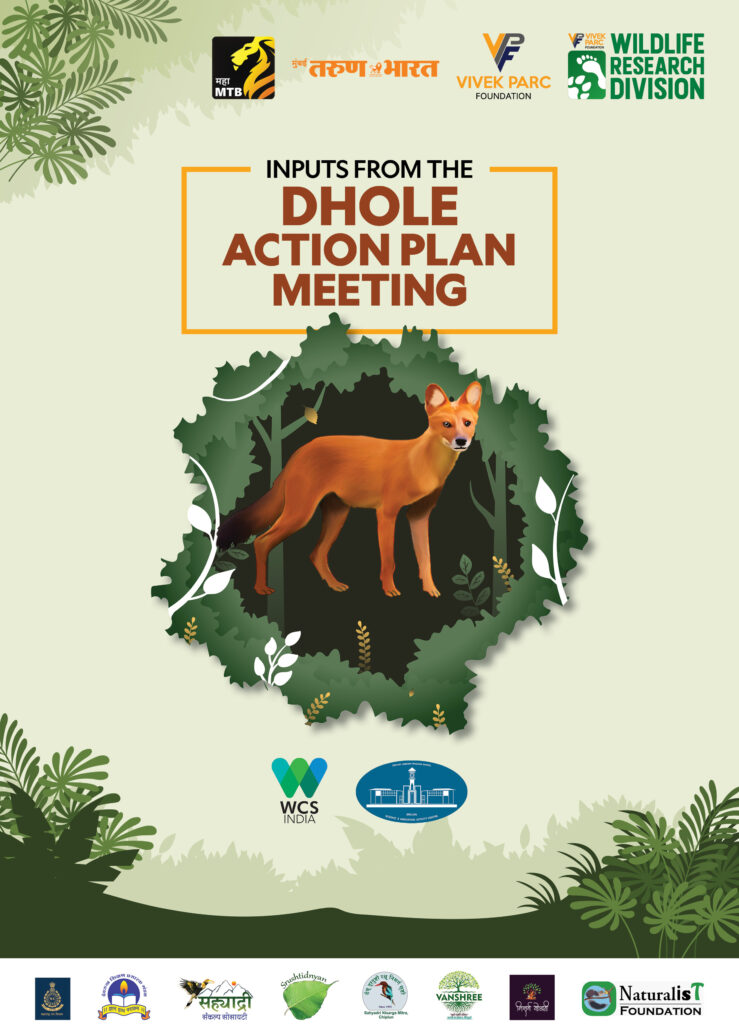
Inputs from the Dhole
Action Plan Meeting
An action plan meeting was held to discuss conservation efforts for Dholes (Asian wild dogs) in western Maharashtra. Attendees included forest officials, researchers, experts, and enthusiasts. The meeting aimed to address conservation issues and identify opportunities to protect the Dhole population in the region. The following report summarizes the inputs from the aforementioned participants.

